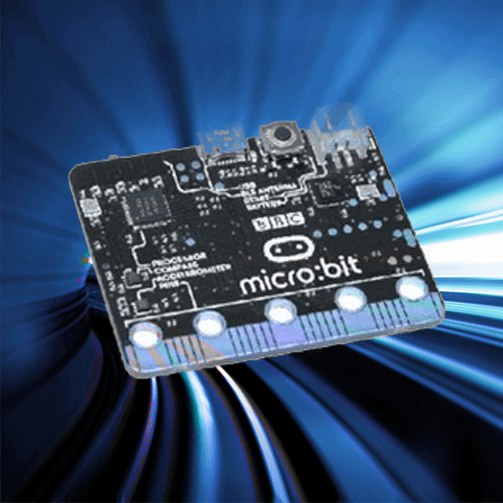
As regular readers of our blog will attest – we love innovation. Our joy at the creative thinking of others does not confine itself to the tech industries. We love nothing better than reading, hearing and seeing others push the envelope.
However, it just so happens this blog does indeed champion a tech innovation, a tech innovation from none other than the BBC.
The Micro Bit is a pocket-sized computer, 4cm by 5cm (1.6in by 2in), which the BBC aims to give away to around one million children in the UK this coming October.
The aim is to give the computer to every child, aged between 11 and 12 years of age. The project, created by a coalition of 29 partners including British microchip designer ARM and Samsung, is designed to kickstart the number of secondary school children who will leave school with coding skills in the future.
BBC Learning head Sinead Rocks said: “The BBC Micro Bit is all about young people learning to express themselves digitally.
“As the Micro Bit is able to connect to everything from mobile phones to plant pots and Raspberry Pis, this could be for the internet-of-things what the BBC Micro was to the British gaming industry.”
The Micro Bit will be a wearable device, with an add-on pack, which will need two AA batteries, and features include a programmable array of lights and two buttons and a built-in motion sensor.
The idea behind the Micro Bit is to encourage children to write simple code. They can save their code via a new website, which is accessible via PCs and tablets and mobile devices. Once saved they can test their programs on the site before transferring them to the Micro Bit via a USB cable or wireless Bluetooth connection.
The Micro Bit can then be made to interact with its built-in sensors and buttons to make its 25 LEDs flash in different patterns, letting it display – for example – letters and numbers.
In addition, it can be connected to other computing kit via its input-output rings – including the Raspberry Pi, Arduino and Galileo – to carry out more complex tasks.
The BBC’s director general Tony Hall said the device should help tackle the fact children were leaving school knowing how to use computers but not how to program them.
“We all know there’s a critical and growing digital skills gap in this country, and that’s why it’s so important that we come together and do something about it,”
As we said earlier, the BBC has been targeted recently over the licence fee, so it would be perfectly reasonable to ask how is the Micro Bit being funded – from the licence fee?
Well, the good news is the vast majority of the costs have been covered by the 29 partners the BBC has worked with on the project. For example, ARM has done much of the work on the design of the device, while it’s Microsoft which has developed the software.
We have to say we are all for it. The BBC’s director general, Lord Hall, said at the launch that this project was rooted in the corporation’s mission to educate as well as to entertain. It’s seen as being an echo of the very successful BBC Micro which gave many people an introduction to computers in the 1980s, and the hope is that it will inspire the next generation of tech pioneers.
Bring it on!
Until next time…
